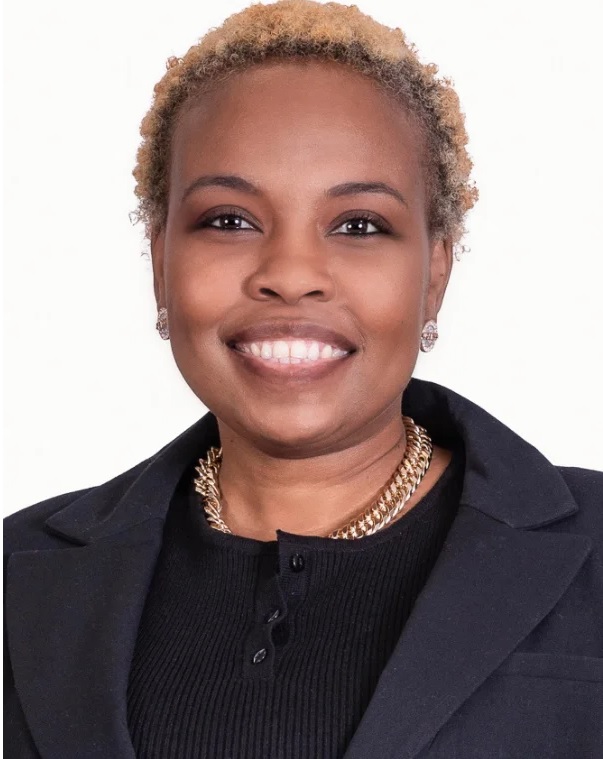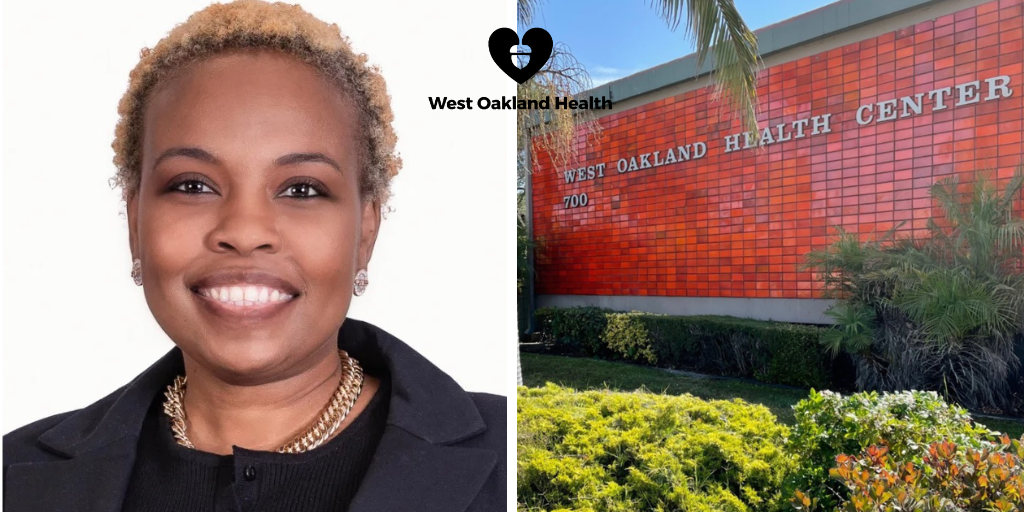Importance of Culturally Concordant Care
About Baywell Health (formerly West Oakland Health):
Baywell Health was founded 55 years ago during the Civil Rights and Black Power Movements by four Black mothers who are affectionately known as The Founding Four: Jessie Hamilton, Edith Brown, Olivia Parks, and Cloteal Davis. Together they launched Baywell Health to help meet the health needs of the Black community in West Oakland. Inspired by the social justice movement, responding to the needs of Black community members, Baywell has since grown and evolved to provide quality, accessible care and response to its diverse patients and community members alike. As patient needs continue to grow, Baywell continues to respond in ways that build a more equitable path to healthcare for all.
We chatted with Zhavontia Crosby, Director of Patient Care Services at our member health center Baywell Health to learn more about her emphasis on patient-focused, cultural concordance care that can result in a positive patient-physician relationship for minoritized patients through individualized care and communications.
 Name: Zhavontia Crosby
Name: Zhavontia Crosby
Title: Director of Patient Care Services, Baywell Health
Guiding quote/tagline: Respect is a standard, not an objective.
Alameda Health Consortium: Tell us a little bit about yourself.
Zhavontia Crosby: I am originally from Greenville, South Carolina. My family’s roots run deep through the southeastern region of the United States. I am from a large and loving family that have always been my biggest supporters.
I attended Greenville Technical College for my diplomas in allied health sciences (pharmacy technician 1998, and LPN 2005). I also graduated from the University of South Carolina with a Bachelor of Science in Nursing.
I am a Registered Nurse (RN) and I’ve been in the healthcare industry for 25 years. I began my career in healthcare as a certified pharmacy technician in acute care hospitals and later became a certified nursing assistant, licensed practical nurse (LPN) and then a registered nurse (RN). I’m now entering my 18th year as a registered nurse. My nursing background is in medical-surgical/telemetry, step-down, case management, hospice and now community health nursing. To me nursing is: The Science of medicine + The Art of Caring.
AHC: What was it about community health centers (CHCs) that drew you to their work?
ZC: I initially entered the doors of Baywell Health with one intention, to earn extra money to pay my tuition to obtain my master’s degree. It was my intention to use my skills to only fill a job opening for a nurse. If there is one thing I know how to do well, it’s nursing!
What brought me to Baywell Health and what has kept me here are two entirely different things. During my time as a part-time clinic nurse, I saw the opportunity to have an impact on the overall health of a population, rather than one patient or one case load at a time.
It is an honor and a pleasure to have reached a place in my career where I am able to expand my reach within a historic, vibrant, and colorful community.
AHC: What is “patient-centered” care and what does it mean for you and your work at Baywell? Why is it so important?
ZC: It is important to meet patients “where they are.” This means that no matter their station in life (socioeconomic status, ethnicity, immigration status, etc.) it is imperative that patients receive both culturally and linguistically competent care in a welcoming environment by a diverse interdisciplinary team that is committed to improving health outcomes of all persons served.
Quality of care should not be compromised or determined by anyone’s zip code or physical characteristics. It is important for our team to remove as many barriers as possible to ensure our community/patients receive equitable primary care services, access to specialty services and support in navigating a complex healthcare system through an interdisciplinary team approach.
I strongly believe that relational continuity aids in better health outcomes and improved patient experiences through building trust and confidence with the primary care service providers. Relationships between patients and their providers provide a space that is rewarding for both, especially for patients who are transitioning between various levels of care. It is my intention to be a conduit in fostering a safe space for all humans despite their background or life experiences.
AHC: Health care is an interaction and patients value their physicians’ personalities and demeanor as much as they love their care. What happens when that exchange is compromised?
ZC: When the exchange is compromised, so is health. Black patients consistently experience poorer communication quality, information-giving, patient participation, and participatory decision-making. Our role at Baywell is to address this. We have a diverse staff that is interconnected with the communities that we serve. Patients openly express gratitude when they encounter clinicians/providers/professionals that look, walk and talk like them. It’s a vital part of the connection process between patient and provider.
AHC: This interaction is driven by two things – cultural concordance and how this is embedded in the health center’s operations with the ultimate goal of providing an experience that makes folks not ask, “will I lose my dignity?” How does this show up for you as Director of Patient Care Services?
ZC: It is imperative that we provide culturally competent care. Providing wholistic, whole-person care, with a clear understanding of social, cultural, and economic factors, we are able to treat more than the diagnosis, we get a deeper understanding of what patients may be experiencing or going through in their day-to-day lives. We aim to influence behavior changes in a way that is relatable. Care plans are not only guided by the patient’s needs, but also their preferences. We invite each patient to take an active role in their personalized care. They are the driver of their care.
One example is when I am providing hypertension education to facilitate changes in a patient’s sodium intake. I first acknowledge “I know how good it is to throw a ham hock over into a pot of greens, what I started doing is cutting up bell peppers, onions and garlic and cooking my greens. What seasonings do I use? I’m using a salt free seasoning I found at the grocery store.” It is quite satisfying when the patient responds “OK! I’m going to try that and I’m going to tell you how they came out next time I see you!” Now, please make sure you read that interaction with the deepest southern accent that you can imagine!
As Director of Patient Care Services, I provide the staff with practical approaches to influence lifestyle changes in ways that do not hinder the patient from reaching small, yet measurable health care goals. Getting an uncontrolled diabetic patient to agree to add a cucumber to their lunch box a few times a week can have a tremendous impact on their overall health.
AHC: How much importance or emphasis should be placed on cultural concordance when it comes to patient care?
ZC: The amount is immeasurable. Whatever it takes reduce disparities, bias, judgment to provide optimal care regardless of race, gender, ethnicity, language, religion or culture.
AHC: In what ways are community health centers like Baywell uniquely positioned to provide patient-centered care?
ZC: We are positioned to truly be a hub of health by facilitating healing, alleviating/reducing suffering through the diagnosis and treatment of human response and advocacy in the care of individuals, groups, communities, and populations.
We are a One Stop Shop to meet the needs of the community through health promotion to optimize health and physical ability. We offer dental, optometry, WIC, pediatric, adult, behavioral, social and nutritional services from pre-natal through end of life under our one brand. If we cannot provide a service here, we are a part of a consortium that will collectively do the work to ensure we fill the need.
AHC: Conversely, patients who trust their healthcare providers are more likely to report beneficial health behaviors. How do you begin to build and maintain patient trust?
ZC: I let the patients know I am human, and I am also flawed. I too have or had similar struggles in healthy behavioral changes. I am empathetic in my approach and demonstrate a willingness to close any gaps or bridge barriers that may be a hindrance to behavior change/decision making.
AHC: Is there anything else you wish to share about the ways in which you approach patient care?
ZC: It is through coordination, collaboration, facilitation, education, and advocacy that I am able to influence sustainable change in communities that were once overlooked. This is how and where the spirits of the Founding Four show up in my day-to-day approach. I have a genuine commitment to seeing Baywell Health and our patient population excel.
Despite the workload of being a Director of Patient Care Services, I make sure that I extend myself to the community. I am accessible. I offer my card and my extension when needed. I ask patients to call me when they feel they are not getting the services they deserve. When they call, I answer. If I miss the call, I will return it or delegate it appropriately. This is how you build and maintain an environment of trust between provider and patient, and this is how we keep building paths towards health equity. We must follow up and follow through on what we say we’re going to do.
You can learn more about Baywell Health HERE.
